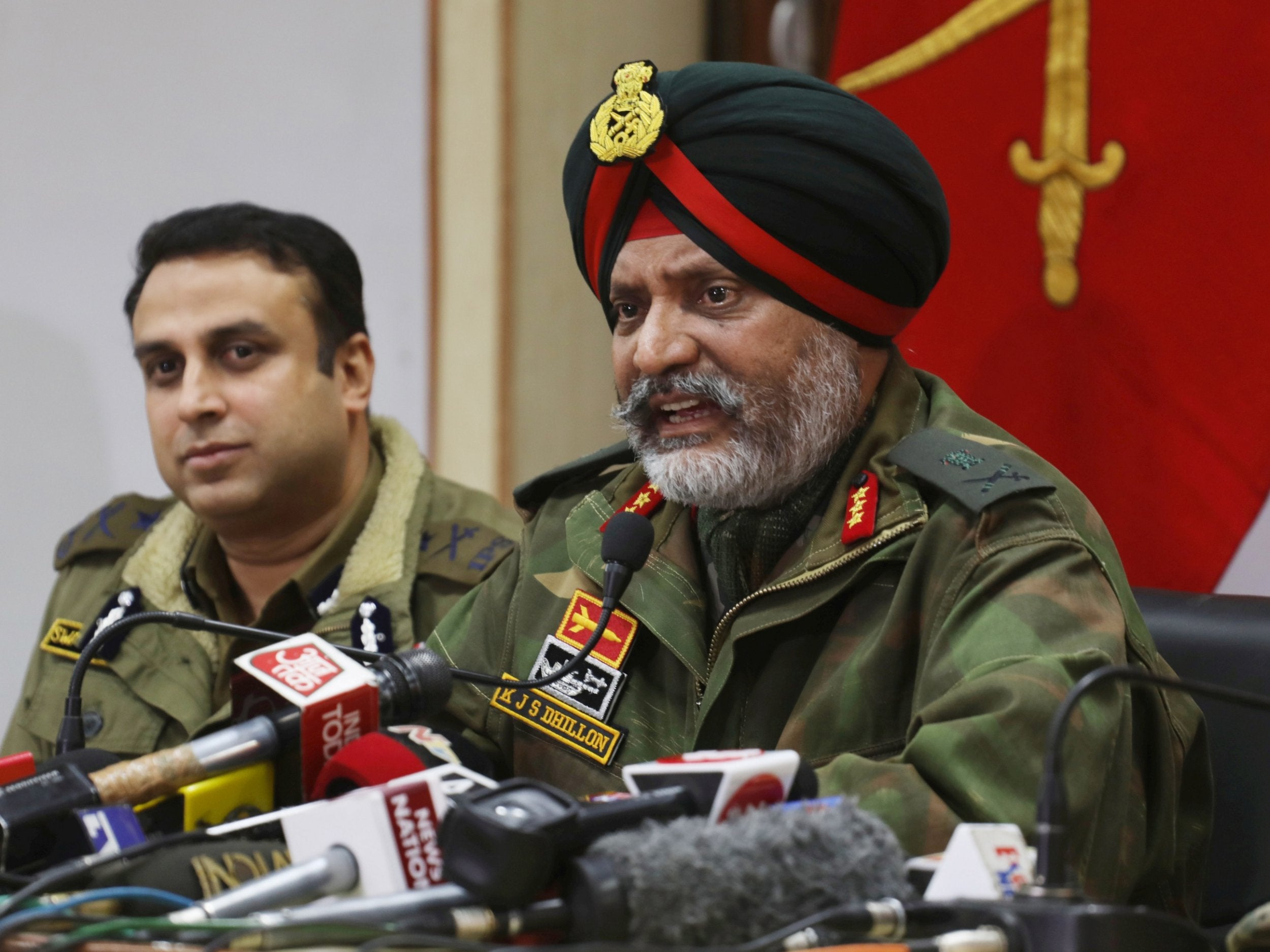Pakistan 'will retaliate' if India takes military action over militant attack, Imran Khan warns
Amid rising tensions, Pakistan's PM tells India any revenge attack would be met with 'assured retaliation'

Mothers in Kashmir should tell their sons to put down their arms or be prepared to see them dead, India’s top military commander in the contested region has said after an unprecedented suicide bomb attack.
Responsibility for the bomb, which killed 40 paramilitary police, has been claimed by Pakistan-based Jaish-e-Mohammad (JeM) jihadist group.
Pakistan’s prime minister, Imran Khan, has now responded for the first time, saying India should avoid blaming Pakistan for involvement in the attack “without any proof or evidence” and that the only way forward was through dialogue. “Any adventurism on the part of India to threaten the sovereignty of Pakistan will be met with assured retaliation,” he warned. “I hope better sense will prevail.”
The attack last Thursday near Pulwama, in which a suicide bomber drove a car carrying explosives into an Indian security forces convoy, was the deadliest since Kashmir’s violent insurgency began three decades ago.
Both India and Pakistan control parts of Kashmir and claim the whole region in its entirety. On Tuesday, India’s Lt Gen KJS Dhillon accused Pakistan’s main spy agency – Inter-Services Intelligence (ISI) – of “controlling” the bombing from across the border.
Lt Gen Dhillon did not provide any proof for his accusation and said he could not be more specific about the investigation, except to note what he called ISI’s close links with the JeM.
The man who carried out the Pulwama bombing was a 20-year-old named Adil Ahmed Dar who was described by local police as a “chronic stone-thrower”, referring to his long participation in protests against the Jammu and Kashmir state security forces.
His parents said he had joined a militant group after being beaten by Indian troops three years ago. “I never imagined my son would become a suicide bomber,” said father Ghulam Hassan Dar on NDTV.
Lt Gen Dhillon told reporters: “I would request all the mothers in Kashmir to please request their sons who have joined terrorism to surrender and get back to the mainstream.
“Otherwise anyone who has picked up the gun will be killed.”
Indian’s prime minister Narendra Modi has promised a “strong response” to the attack and, facing a general election in May, said he had given the green light for security forces in Kashmir to act with “total freedom”.
Nine people including three soldiers died in a heavy exchange of gunfire between security forces and militants in a village south of Pulwama on Monday. Police said the dead included a man suspected of playing a leading role in organising the suicide attack.
With no sign of tensions abating, Saudi Arabia’s crown prince Mohammed bin Salman was due to arrive in Delhi on Tuesday evening, after two days of talks with Mr Khan in Pakistan focused mainly on trade.
The Saudi foreign minister said his country stood ready “to try to de-escalate tensions between the two countries ... and to see if there is a path forward to resolving those differences peacefully”.

India called for the diplomatic “isolation” of Pakistan in the immediate aftermath of Thursday’s bombing, and claims to have succeeded in securing messages of solidarity and support from 48 countries since, more than in the wake of the 2008 Mumbai attacks.
Pakistan said it was recalling its ambassador from Delhi and the Indian government had “for domestic political reasons … deliberately ratcheted up its hostile rhetoric against Pakistan and created a tense environment”. It appealed for the UN to step in and help ease tensions.
Join our commenting forum
Join thought-provoking conversations, follow other Independent readers and see their replies
Comments
Bookmark popover
Removed from bookmarks